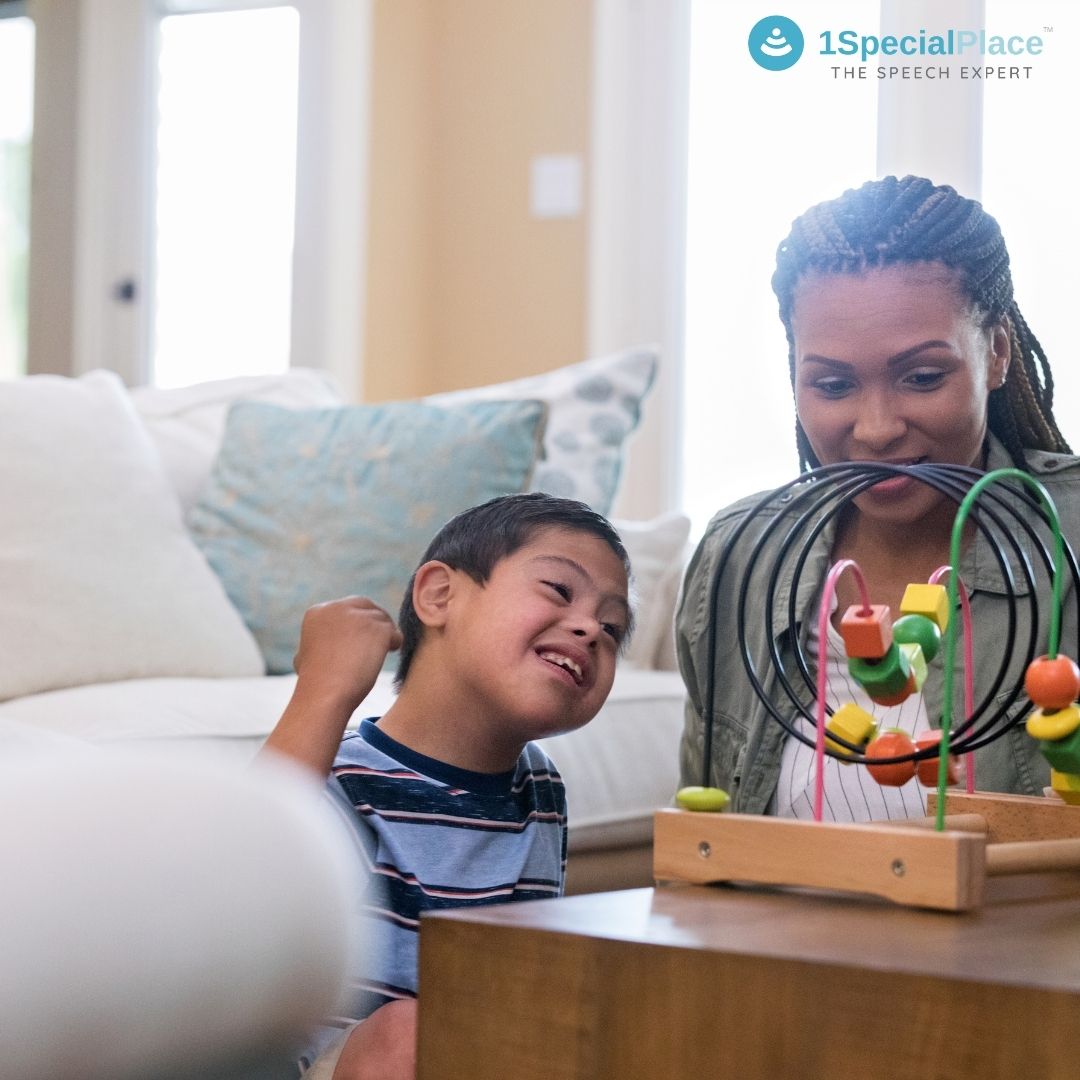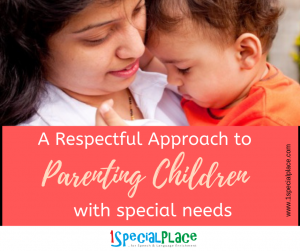
A Respectful Approach to Parenting Children with Special Needs
A Respectful Approach to Parenting Children with Special Needs
“When you approach your child with an attitude of respect, you let him know what you intend to do and give him a chance to respond. You assume he is competent and involve him in his care and let him, as much as possible, solve his own problems. You give him plenty of physical freedom and you don’t push development” – Magda Gerber.
This is just one of the quotes by Magda Gerber, a proponent of respectful care practices towards infants and children that has changed my way of parenting as well as in taking care of infants, toddlers and children with developmental delays/disabilities. What does ‘respectful parenting’ mean? It means treating even the youngest infant as a unique human being, not as an object. In a respectful parenting approach, we allow the child to be authentic and appreciate him/her for what they are.
Approach to Parenting Children with Special Needs
A valid question raised by Magda Gerber got me thinking. Wouldn’t it be easier for both parents and children, if parents would observe, relax and enjoy what their child is doing, rather than keep teaching what the child is not yet capable of? Whether your child is typically developing or is delayed in acquiring certain skills or has a developmental disability, you cannot push the limits so much so that he/she gets frustrated. A deep connection and meaningful communication with your child based on honesty and trust forms the crux of respectful parenting.
Download our app to screen if your child has a speech delay or not.
Parenting is a challenging journey and more so, when you are parenting children with special needs. You might feel like punishing, shaming, manipulating or bribing them to control their behaviour. You might have also tried spanking or yelling or timeouts with them. If these methods do not make you or your child feel any better, you would want to try the respectful parenting approach.
What can you do to parent your child with special needs with respect and give naturalistic language stimulation?
1. Establish Routine:
In the early stages when the child is still not verbal, empower your child with a predictable routine. Such predictability, as Magda Gerber says will bring about security. Your child would feel secure to explore his/her physical environment. Look at your child and talk to him/her about the routine and keep him/her prepared for the next event. This way, you are working on the confidence and self esteem of your child along with providing language stimulation.
2. Set Boundaries:
Children tend to push limits and test the boundaries. It is advisable to set clear boundaries for your child and be consistent about it. As a parent if you are uncertain, it confuses the child and he/she would push the limits yet again. Communicate clearly and firmly without yelling, what is expected out of the child. Be a safe place for your child where he/she can always come back to without fear or hesitation.
 3. Empathize:
3. Empathize:
Your child with special needs could be having a meltdown due to various reasons. Do not shame the child, instead acknowledge his/her emotional state, validate and name the emotions and offer help. Especially if you have a preverbal/nonverbal child, offer choices and be the calm that you want to see in your child. Communicate to reassure. Show up authentic and pave way for authenticity.
4. Observe:
Notice small changes in your child with special needs. While you concentrate, push and wait for the next milestone to be achieved, you are oblivious to the beautiful little changes that keep happening to your child. Children will definitely achieve the milestones, in their own pace and time. Allow time for uninterrupted play and help only when your child seeks help. While you observe, provide a description of the child’s activities and emotional state. Expand your child’s utterances and provide ample opportunities for communication.
Let’s strive not to perfect our children, instead strive to perfect our relationship with them. All else will fall into place eventually. Happy parenting!
This article has been written by Dr. Bhuvaneswari.B who is the Founder President/Director, Resilient Minds Rehabilitation Trust, Bangalore, India. She is also the Asst. Professor (Research), Dr. S. R. Chandrasekhar Institute of Speech and Hearing, India.
Leave us a reply to express your views. Subscribe to our newsletter here.
If you wish to know more about Speech Therapy, kindly contact us at info@1specialplace.com
For more ideas check out our other blogs
Approach to Parenting Children with Special Needs
- Addressing the Silent Struggle in Special Needs Children - December 22, 2023
- Swallowing Difficulties: A Comprehensive Guide - December 12, 2023
- 6 Simple Steps to Enhance Speech Clarity and Connect with Confidence - November 3, 2023




Leave a Comment
(0 Comments)